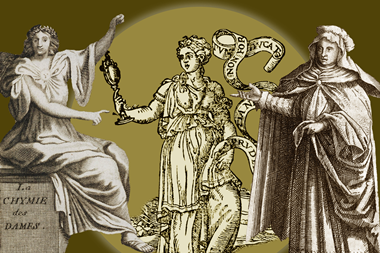Bengt Norden addresses the myths and rumours surrounding the world’s most prestigious science prize
The Nobel prize, now in its 120th year, remains the most sought-after of scientific prizes, to many the pinnacle of scientific achievement. But few know the process by which the winner or winners are chosen. Chemistry World goes behind closed doors to find out how the Nobel committee make their selection.
Our guide on this voyage of discovery is Bengt Norden, chair professor of physical chemistry of Chalmers University of Technology. Norden was a member of the Nobel committee for chemistry – the body responsible for recommending potential laureates – from 1995 to 2004, and counts a great number of Nobel laureates amongst his personal friends.
In this series of videos, Norden walks us through the selection criteria, the nomination process and the investigations they undertake (keep an eye out for Swedes hiding in the bushes outside your lab). He also addresses some of the myths and rumours surrounding the prize and takes us through his favourite examples, as well as some who sadly missed their opportunity.
Criteria
‘The achievement should somehow open a door, or open our eyes. We will see things in a different way’
Is the Nobel prize awarded for a lifetime of scientific achievement? Norden discusses the critera against which research is judged.
Nominations
‘It never, ever happens that one who gets nominated for the first time gets the prize.’
Who nominates people for the Nobel prize? In the second in our series of videos, Bengt explains the nomination process.
Investigations
‘Then we dig until we are satisfied’
In this video, Bengt reveals how the committee investigates nominees to make sure the prize goes to the right person.
Chemistry on rotation?
‘Our artificial division into the five parts of chemistry, for instance, is irrelevant’
Should the chemistry prize only be given to chemists? And should we rotate between different chemistry disciplines? This time, Bengt tackles the perception that different fields ‘take it in turns’.
Awards to the many
‘One person is ideal … you make somebody an icon’
According to the rules, the Nobel prize should only be awarded to a maximum of three people. The peace prize has twisted this rule. Will we soon see the other prizes follow suit?
How winning affects people
‘When we call, we say you have another 20 minutes of peace in your life’
Winning the Nobel prize is not only positive. Some people change for the worse. And Bengt himself has had nightmares about winning.
Standout winners and non-winners
‘I knew him very well. He was as a very intelligent man, but it’s a very complex case’
In our last video, we ask Bengt if there is anyone he regrets didn’t win the Nobel Prize, and are there any standout recipients? We also ask him why the Nobel was never awarded to the discoverer of the contraceptive pill, Carl Djerassi?
Additional information
This video was recorded in 2015. Sadly, Ahmed Zewail died in August, 2016.












No comments yet